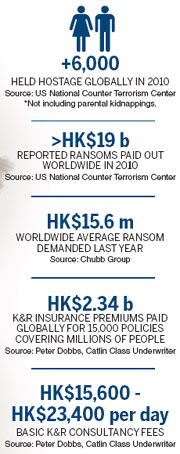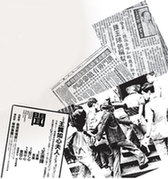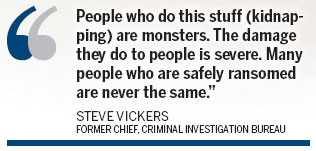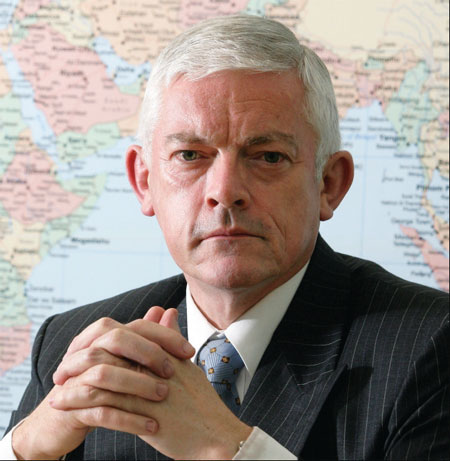Worth more than a king's ransom
Updated: 2013-09-13 07:10
By Timothy Chui(HK Edition)
|
|||||||
Hong Kong, now one of the world's safest cities, used to be a 'kidnapping hub'. Prominent targets of kidnappers included Victor Li Tzar-kuoi, son of Li Ka-shing; Teddy Wang Teh-huei, co-founder of Chinachem; and Walter Kwok Ping-sheung, chairman of Sun Hung Kai Properties. Those days are gone now, thanks to the dedicated efforts by local authorities. Timothy Chui reports.
Teddy Wang Teh-wei was gone, and never would be seen again. Even today, Steve Vickers, who was chief of the former Royal Hong Kong Police Criminal Intelligence Bureau at the time the case was still hot, believes the billionaire property magnate and co-founder of Chinachem Corporation should have come home safe and sound. But things went wrong. People didn't listen. One was Wang himself.
There are simpler ways to help people. By now, Vickers has become a master manipulator in the milieu whose sole aim is saving the lives of people kidnapped for ransom. It's life or death drama, with a cast of gangsters, small-time cutthroats, terrorists, mercenaries and the people they target, the very wealthy. Vickers hates his job. You wouldn't think so. He's been at it more than 35 years. After he retired from the force he opened a private consultancy specializing in kidnap cases.
"I keep doing them but it's not something I like doing. It's the one crime where you can make things much worse. If you deal with a bank robbery, the bank has been robbed. If you deal with a rape, the victim has been raped," Vickers tells China Daily as he stares out the window of his office on the 20th floor of a flatiron tower in Wan Chai. "But in a kidnapping, if you do the wrong thing, you can really make it much worse."
Easy target victum
Vickers believes somebody did the wrong thing in Teddy Wang's case, not only once, but both times Wang was kidnapped. Wang was a frugal man, punctual to a fault. His fastidious adherence to daily routine made him an easy target.
There're the victims' families; frantic, overwrought, none the less so in Teddy Wang's case. His wife Nina didn't listen. She meddled. Families meddle, and in their misguided way, they unravel achievements earned through careful negotiations. They can't be ordered, "don't do this, don't do that." It's a delicate situation.
Nina Wang was with her husband in their Mercedes, pushed into the back seat when her husband was taken for the first time in 1983. She was blindfolded while her husband was forced into a truck and spirited away.
When someone is taken and the ransom demand comes, Vickers' job is to work out a plan to get the victim back safely. First step, agree to talk. Be prepared to negotiate. The "daring rescue" is about as dangerous as it can get. Victims can get caught in the crossfire. It's not about fast, bold and reckless action, Vickers said. Negotiation is the best plan, the simplest plan, and usually it works.
The question of whether things go right or wrong, right from the start is a question of control. The kidnapper believes he is in control. If anything happens to take him out of that comfort zone, things can get dangerous. The wily negotiator exerts the subtlest control. He gets the kidnapper to agree to a routine, daily calls at prearranged times. It's business with unreasonable business people.
"It comes down to keeping things disciplined and business like," Vickers said. Kidnapping is a business for the perpetrators. The victim becomes a commodity they want to sell and there is only one party they can sell it to.
The golden rule for the negotiator is never do anything that could risk the victim's life. Getting them back alive is what matters. Recovering the money and bringing the guilty ones to justice can wait, he said.
There will be threats of killings, mutilations, rape or starvation, but professional kidnappers don't want their assets dead. People won't pay for dead bodies.
"People who do this stuff are monsters. The damage they do to people is severe. Many people who are safely ransomed are never the same. Being held in an oil drum or a refrigerator and not knowing if you're going to be killed leaves deep wounds," he said.
Teddy Wang was chained in a refrigerator. Vickers cautioned Nina Wang that her best chance of seeing her husband alive again was to wait, and not hand over the ransom right away.
The negotiator wants things resolved as fast as can be, but matters need careful appraisal. He does what's expected, asks that the ransom be lowered, buys time, while he tries to read the person on the other end of the line. If the kidnapper suddenly agrees to lower his demands it could be a sign of an even more sinister plot, laying a trap to lure a second family member for a double ransom situation.
While the fate of Teddy Wang hung in the balance, Nina Wang lost her resolve and wired the ransom to a Taiwan bank account.
Deadly mistake
She didn't even demand proof her husband was still alive. That could have been a deadly mistake, had the kidnappers not been professionals.
The better organized gangs had their logistics sorted out and were better to deal with. Those whose crime is committed on impulse are more likely to kill hostages.
Nine Wang waited a week, not knowing whether her husband was alive or dead, then he turned up one day on a street in Sha Tin.
"Of the 28 cases I worked, nearly all involved a male child. Some ranged from modest millionaires to the very richest, like Teddy Wang. The common factors in Hong Kong were that they targeted the child in advance and because of an underlying grudge arising from the family's success," he said.

Kidnapping in Hong Kong often arose from business deals gone wrong, Vickers said, adding, incidents of people held for ransom in apartments somewhere in Guangdong were greatly underreported. Gangs engaged in kidnap for ransom once flourished on the mainland, he told China Daily.
Some operations were completely local in their planning and execution. Others spanned oceans. In one case, the victim was taken in Vancouver, the ransom was paid in Taiwan and the negotiations were carried out in Hong Kong.
Canvas bags, dropped at petrol stations by family members of the victim would be scooped up near the midnight hour by bandits on motorcycles. Today, kidnappers want the money put in dummy bank accounts.
The public rarely hears about the majority of cases. They are resolved quietly out of the media spotlight.
Vickers trains high-flying corporate executives who work in dangerous regions the world over. He advises his clients on how the business of kidnapping works, what to look for, how to behave. "The longer you're in captivity the less likely it is you'll be killed," he said. Beyond that, however, he declines to offer public comment on the advice he gives clients on how to conduct themselves in captivity.
There are, however, common-sense rules.
"The months before Chinese New Year were high season for kidnapping since Chinese people must settle their debts by Chinese New Year or people with grievances seek to enforce them prior to Chinese New Year," he said.
Parties and their immediate staff are taught to detect early signs of reconnaissance by unknown individuals and to call the authorities when they observe people hanging about.
"Hong Kong is simply not the place to do it anymore," Vickers said. Yet, "There will still be very wealthy families with dark histories in Hong Kong which might lead back to some aggrieved group out there," and so the gangs are snatching up targets leaving the city instead of outside their homes or schools as in the past.
The real story
Perhaps that was the real story behind what happened to Teddy Wang.
Vickers believes Wang could still be alive had he learnt a lesson the first time he was kidnapped. Wang could have beefed up his personal protection and varied his rigid routine, but he was alone when he was intercepted on Peak Road after leaving the Hong Kong Jockey Club in Happy Valley one day in 1989. It was very much like the first time he was kidnapped.
His captors demanded HK$60 million. As she had done the first time, Nina Wang crumbled and, despite Vickers' admonitions that she not do so, she paid the ransom immediately. There was nothing Vickers could do.
Of the 28 kidnapping cases Vickers handled, 26 came home. Two did not, including Teddy Wang.

Vickers, deep down, believes Wang's second kidnapping was a planned homicide, made to look like a kidnapping. Teddy Wang was never seen again. No trace of him has been found. One of the kidnappers later told a court that Wang was held on a boat at sea but tossed overboard to drown as a Chinese naval vessel drew near. He was declared legally dead in 1999.
Who could have been responsible? It's hard to say. The declaration by the courts that Teddy Wang was dead kicked off a long probate battle that carried on for more than a decade.
The courts originally ordered that the estate go to Teddy Wang's father. When the case went to appeal, the estate was awarded to Nina Wang. After her death in 2007, her geomancer lover, Tony Chan Chun-chuen attempted to seize the estate with a will, purportedly written by Wang but later declared to be a forgery.
The court ruled the legal heir to the estate was the Chinachem Charitable Foundation, the charity trust of the corporate giant the couple built together.
Hong Kong is no longer where the action is for kidnapping, Vickers says, not like in the 1980's and 90's. Effective detection and apprehension of those responsible has created a deterrent, but those who are wealthy or in high positions never can let down their guard.
Contact the writer at tim@chinadailyhk.com
|
Former police anti-kidnapping kingpin Steve Vickers now spends his day as CEO of his specialist political and corporate risk consultancy Steve Vickers and Associates |


(HK Edition 09/13/2013 page3)
